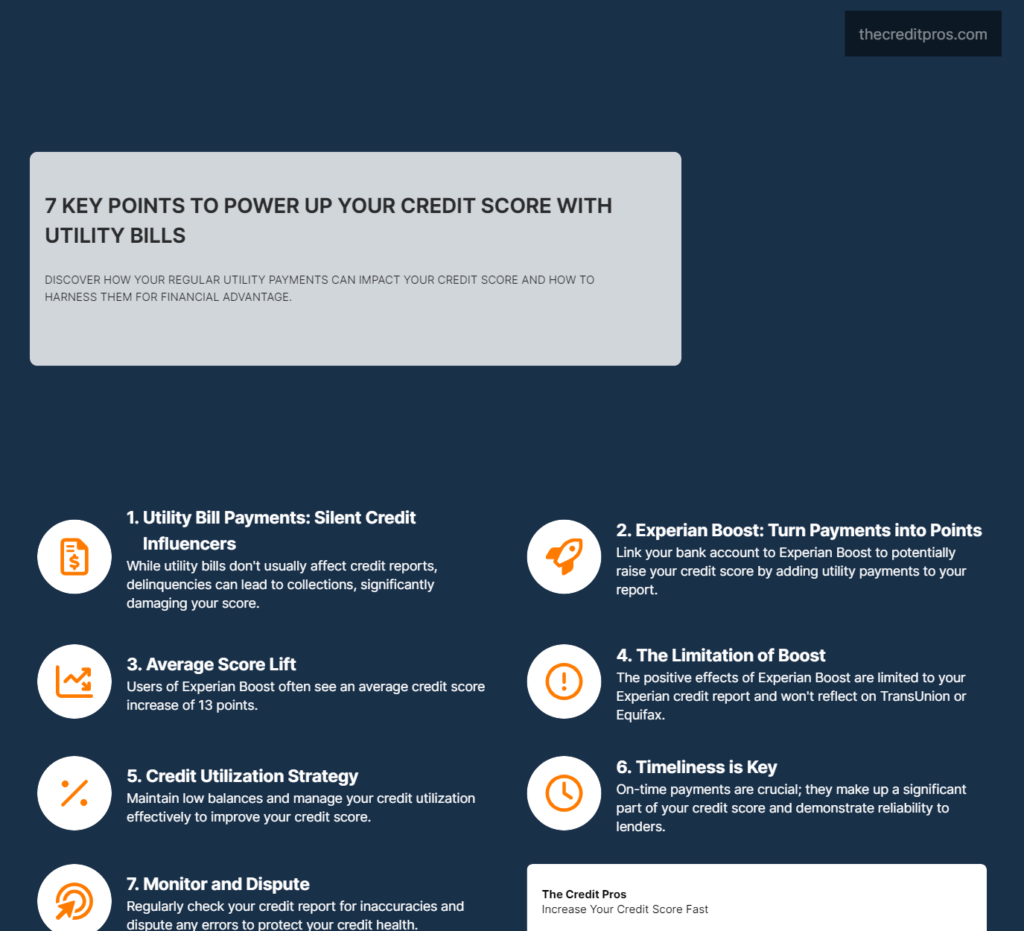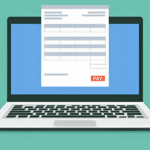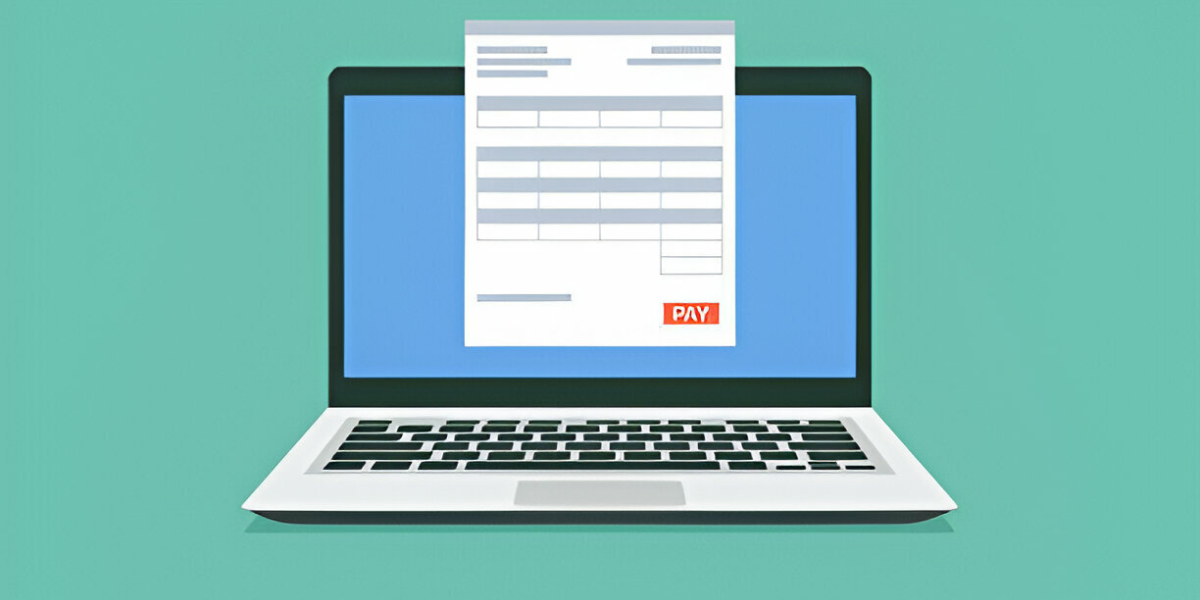Understanding your credit score can sometimes feel like deciphering a secret code. While most people know that credit cards and loans play a significant role, fewer are aware of how utility bills can influence their credit health. Paying your electricity or water bill on time can make a difference. And what happens if you miss a payment? These are questions worth exploring, especially if you’re looking to improve your credit score.
Utility bills typically don’t show up on your credit report unless there’s a problem, like a missed payment that goes to collections. But what if there was a way to use your timely utility payments to your advantage? Services like Experian Boost offer one such opportunity, but how effective are they? And are there other methods to consider? This article will explore these questions, offering practical tips and strategies to help you manage your utility bills and enhance your credit score.
The Hidden Impact of Utility Bills on Credit Scores
Utility Bills and Credit Reports
Utility bills, such as those for gas, electricity, water, and internet, typically don’t appear on credit reports unless there’s a significant issue. This is because utility companies generally don’t report payment histories to the major credit bureaus—TransUnion, Experian, and Equifax. Unlike credit cards or loans, utility accounts aren’t considered credit accounts, and thus, their payment histories aren’t regularly included in credit scoring models.

However, the absence of utility bills on your credit report doesn’t mean they’re irrelevant to your credit health. If you consistently pay your utility bills on time, it helps maintain a positive financial standing, even if it doesn’t directly boost your credit score. Conversely, if you become delinquent, the impact can be severe.
Delinquency and Collections
When utility bills aren’t paid on time, the utility company may eventually send your account to a collection agency. This typically happens after several months of missed payments. Once in collections, the delinquency is reported to the credit bureaus, which can significantly damage your credit score. The presence of a collection account on your credit report is a red flag to potential lenders, indicating a higher risk of default.
The process of sending an account to collections involves several steps:
- Initial Missed Payment: The utility company will notify you of the missed payment and may impose late fees.
- Subsequent Missed Payments: Continued non-payment will result in additional fees and warnings.
- Final Notice: Before sending the account to collections, the utility company will issue a final notice.
- Collections: The account is handed over to a collection agency, which then reports the delinquency to the credit bureaus.
Legal and Reporting Constraints
Utility companies are generally hesitant to report payment histories to credit bureaus due to several constraints. Reporting to credit agencies is not only expensive but also subjects the utility company to the Fair Credit Reporting Act (FCRA). The FCRA imposes strict regulations on how consumer information is reported and managed, which can lead to potential legal issues for the utility companies. Most prefer to avoid these complications, opting instead to report only when an account becomes severely delinquent.
Leveraging Utility Bills for Credit Improvement
Experian Boost
Experian Boost is a service that allows consumers to include utility and telecom payments in their credit history. By linking your bank account to Experian Boost, the service can track your utility payments and add them to your Experian credit report. This can potentially improve your credit score by demonstrating a history of on-time payments.
The process is straightforward:
- Sign Up: Create an account with Experian Boost.
- Link Bank Accounts: Connect the bank accounts you use to pay utility bills.
- Review and Confirm: Experian Boost will identify qualifying payments and ask you to confirm them.
- Boost Your Score: Once confirmed, these payments are added to your Experian credit report.

Success Stories and Limitations
Many users have reported success with Experian Boost, seeing an average increase of 13 points in their credit scores. This can be particularly beneficial for individuals with thin credit files or those looking to improve their scores quickly. However, it’s important to have realistic expectations. The boost in your credit score may not be substantial, and the service only affects your Experian report, not those from TransUnion or Equifax.
Alternative Methods
Aside from Experian Boost, there are other ways to leverage utility payments for credit improvement:
- Rent Reporting Services: Some services allow you to report rent payments to credit bureaus, which can also help improve your credit score.
- Secured Credit Cards: Using a secured credit card responsibly can help build a positive credit history.
- Credit Builder Loans: These loans are designed to help individuals build credit by making regular payments.
Effective Credit Score Strategies Beyond Utility Bills
Secured and Unsecured Loans
Secured and unsecured loans play a significant role in building a positive credit history. Secured loans are backed by collateral, such as a car or savings account, which reduces the lender’s risk. Unsecured loans, on the other hand, don’t require collateral and are based solely on your creditworthiness.
Both types of loans can help improve your credit score if managed responsibly:
- Secured Loans: Often easier to obtain for individuals with poor or no credit history. Making timely payments can help build credit.
- Unsecured Loans: Typically have higher interest rates but can significantly boost your credit score if paid on time.
Credit Utilization
Credit utilization is the ratio of your current credit card balances to your credit limits. It is a critical factor in determining your credit score. A lower credit utilization ratio indicates that you aren’t overly reliant on credit, which is favorable to lenders.
To manage your credit utilization effectively:
- Keep Balances Low: Aim to use less than 30% of your available credit.
- Pay Down Debt: Reducing your credit card balances can improve your credit utilization ratio.
- Request Credit Limit Increases: Higher credit limits can lower your utilization ratio, provided you don’t increase your spending.
Timely Payments
Making timely payments is perhaps the most crucial factor in maintaining and improving your credit score. Payment history accounts for a significant portion of your credit score, and even one missed payment can have a detrimental effect.
To ensure timely payments:
- Set Up Reminders: Use calendar alerts or payment reminders to avoid missing due dates.
- Automate Payments: Enroll in automatic payments for recurring bills.
- Prioritize Debts: Focus on paying high-interest debts first to avoid accumulating excessive interest.
Practical Tips for Managing Utility Bills and Credit
Budgeting and Planning
Effective budgeting and planning are essential for ensuring timely utility bill payments. By managing your finances wisely, you can avoid the pitfalls of missed payments and the subsequent negative impact on your credit score.
Here are some practical tips:
- Create a Budget: Outline your monthly income and expenses to understand your financial situation.
- Track Spending: Monitor your spending to identify areas where you can cut costs.
- Set Aside Funds: Allocate a portion of your income specifically for utility bills.

Monitoring Your Credit
Regularly monitoring your credit score and report is crucial for maintaining good credit health. By keeping track of your credit, you can identify and address issues before they become significant problems.
Tools and practices for monitoring your credit include:
- Credit Monitoring Services: Use services that provide regular updates on your credit score and report.
- Annual Credit Reports: Obtain free annual credit reports from each of the three major credit bureaus.
- Dispute Errors: If you find inaccuracies on your credit report, dispute them promptly to avoid negative impacts.
Avoiding Common Pitfalls
There are several common mistakes that can negatively impact your credit score. By being aware of these pitfalls, you can take proactive steps to avoid them.
Common mistakes to avoid:
- Ignoring Bills: Failing to pay bills on time can lead to collections and a damaged credit score.
- Maxing Out Credit Cards: High credit utilization can significantly lower your credit score.
- Applying for Too Much Credit: Multiple credit inquiries in a short period can negatively affect your score.
By following these practical tips and strategies, you can effectively manage your utility bills and maintain a healthy credit score.
Conclusion: Wrapping Up Your Credit Journey
Understanding the nuanced impact of utility bills on your credit score can be a significant advantage. While these bills typically don’t appear on your credit report unless there’s a delinquency, services like Experian Boost offer a unique opportunity to leverage your timely payments for credit improvement. This approach, coupled with effective strategies like managing credit utilization and making timely payments, can help you build a robust credit profile.
The journey to a better credit score involves proactive management and smart financial decisions. By integrating utility payments into your credit strategy and staying vigilant with your overall financial health, you can turn potential setbacks into stepping stones. Remember, your credit score reflects your financial habits and is a key to unlocking future opportunities. So, take control and make every payment count.


